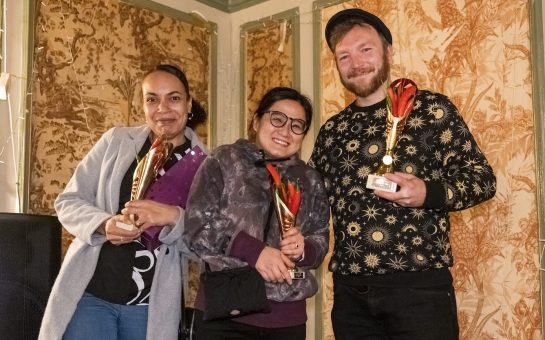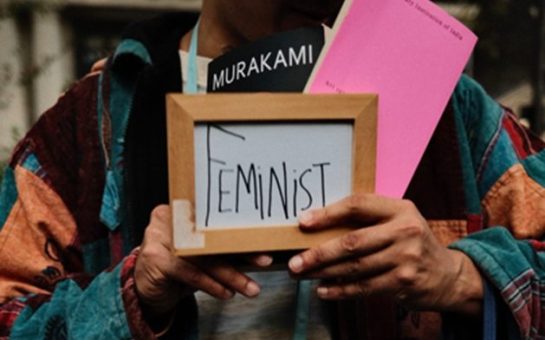A female chess grandmaster and the founder of a chess cafe are harnessing the popularity of a hit TV series to challenge the sport’s male dominance.
When historical drama ‘The Queen’s Gambit’ premiered on Netflix on 23 October, the number of Google searches related to chess skyrocketed globally, sales of chess sets boomed, and eBay recorded a 216% increase in the purchase of products related to the 1500-year-old game.
Amanda Ross, a management consultant living in London, founded a popup chess café in the city six years ago, in the hope of increasing female participation in the sport.
The women-run group, now called The Queen’s Gambit Chess Café, has over two thousand members on Facebook, and although mixed gender, has offered free chess lessons for women for over four years.
She said: “We’ve increasingly been giving more and more lessons, because it has increasingly become my mission to make chess 50-50 men and women.
“The sticking point we’ve had is that we’d get these women to come and we’d teach them, and then they’d go back to whichever part of London they were from, and then feel isolated when they’d go back to their local chess club, being the only woman.
“But now with the popularity of The Queen’s Gambit we can surf that tsunami of interest. I’ve just done a course that’s going to have 20 women graduating from it who can walk arm in arm into a chess tournament and instead of being one in a hundred, they’ll be 20% of people playing.”
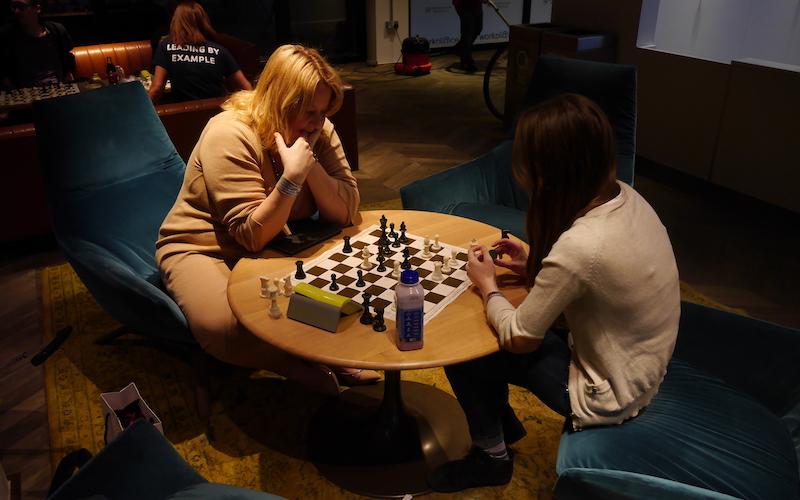
Ross tried to pursue chess as a young girl, but when she attended her school chess club with a friend, her headmaster segregated the pair from the boys, leaving them to play alone in the corner of the hall.
She said: “The message was received and understood that this is a boys thing, and it was kind of disappointing because I was really keen on it and there was no access, no Mr Shaibel [Beth Harmon’s first chess coach in The Queen’s Gambit] handy.
“I got really quite good quite quickly, which was also quite frustrating because if I had been playing when I was 11 maybe I would have been a grandmaster now.
“Chess has quite a sort of sexist culture, and it’s a bit of a chicken and egg thing I think because it’s quite male-dominated, so I think it has attracted quite a lot of men who like the idea of being in a space where there aren’t really women.
“We wanted to provide a space for people who might otherwise feel out of place in that environment.
“Another thing that is often said is ‘oh women just aren’t interested in chess’ and we’ve given the lie to that because we’ve had so many women come and be interested, and stay and play casually with us.”
The Queen’s Gambit was directed by Scott Frank and Allan Scott, and is based on a novel of the same name by Walter Tevis.
It is set during the Cold War and depicts young female protagonist Beth Harmon’s journey as she grapples with the loss of her parents, drug addiction and the mastery of one of the most mentally gruelling sports.
Although many of Beth’s games were based on classic matches, her character and story are fictional, and in fact, there hasn’t yet been a single female World Chess Champion.
But there are women performing at the highest level of chess, proving the sport’s male dominance must be caused by social factors.
Dina Belenkaya, 27, of Saint Petersburg, Russia, is a professional chess player who plays online for Battersea Chess Club, where she hopes to inspire young women to get into the sport.
She became a grandmaster – the highest title a chess player can attain – in 2016.
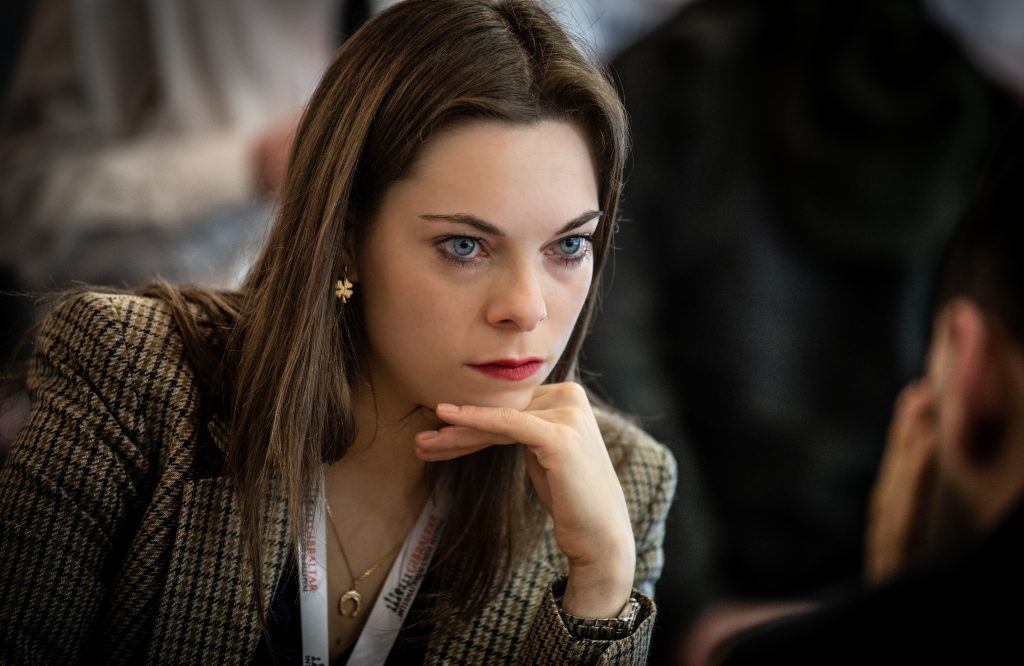
After tournaments were cancelled around the world due to coronavirus, she developed her online streaming presence on platform Twitch.
A viewer from London’s Battersea Chess Club invited her to represent them, and she has since played five games for them in online competitions.
She said: “For my part I can say that I have already beaten a lot of men that are professional chess players, including English ex-champion Luke McShane, which shows that it is actually possible.
“There is no specific reason, physical or mental, for men to be better than women at chess.
“I think it’s like in business or politics, it’s only by creating female role models that you start a trend that will push more women into the game, and in a few years we’ll be able to have fierce women in every discipline.
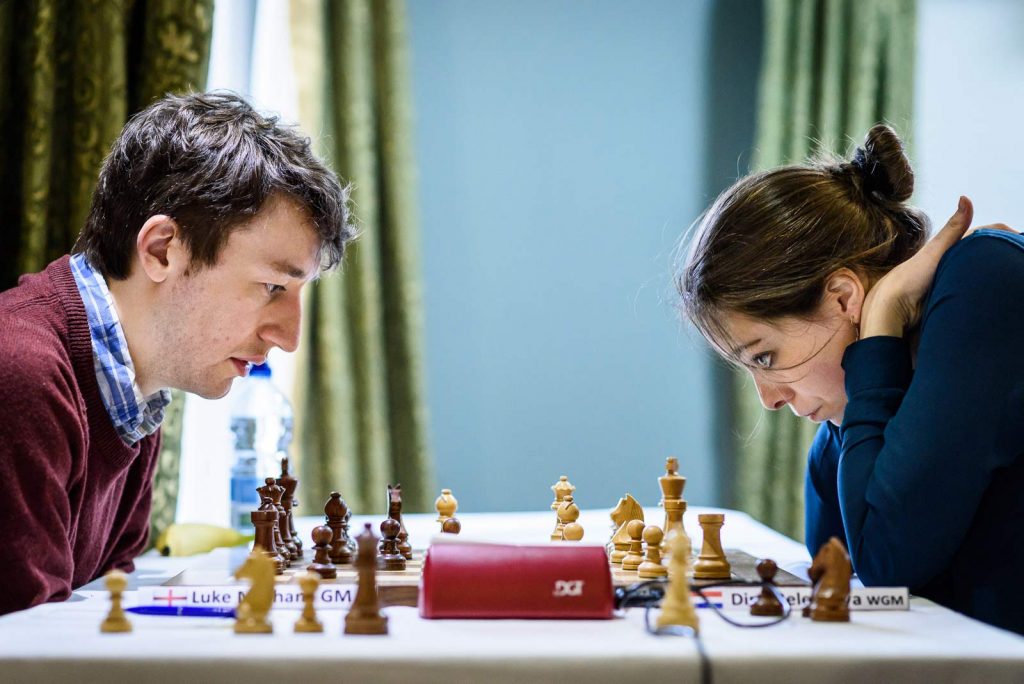
“It’s just a question of how to create a female friendly environment.
“What’s interesting is that we have an incredible number of women streamers, so there are a lot of role models like me who popularize chess and show that the chess world can be full of women.
“What is happening right now is that new generations are attracted more by fast chess and video games, and these two worlds should be combined.
“It now takes only a few minutes to access world elite grandmasters playing live on their channel, and it’s just a few clicks to find good training content on YouTube, and you can watch chess competitions from anywhere. This will definitely open the chess world to new audiences.
“I not only watched the Queen’s Gambit, I absolutely loved it. I hope that the series will encourage more women to play.”


